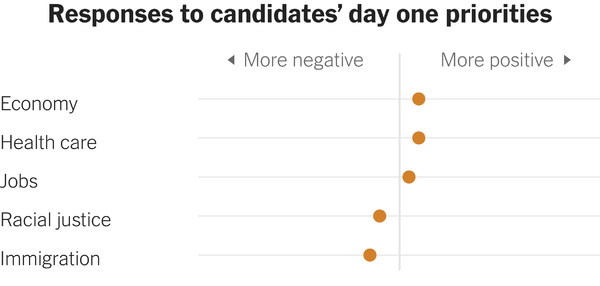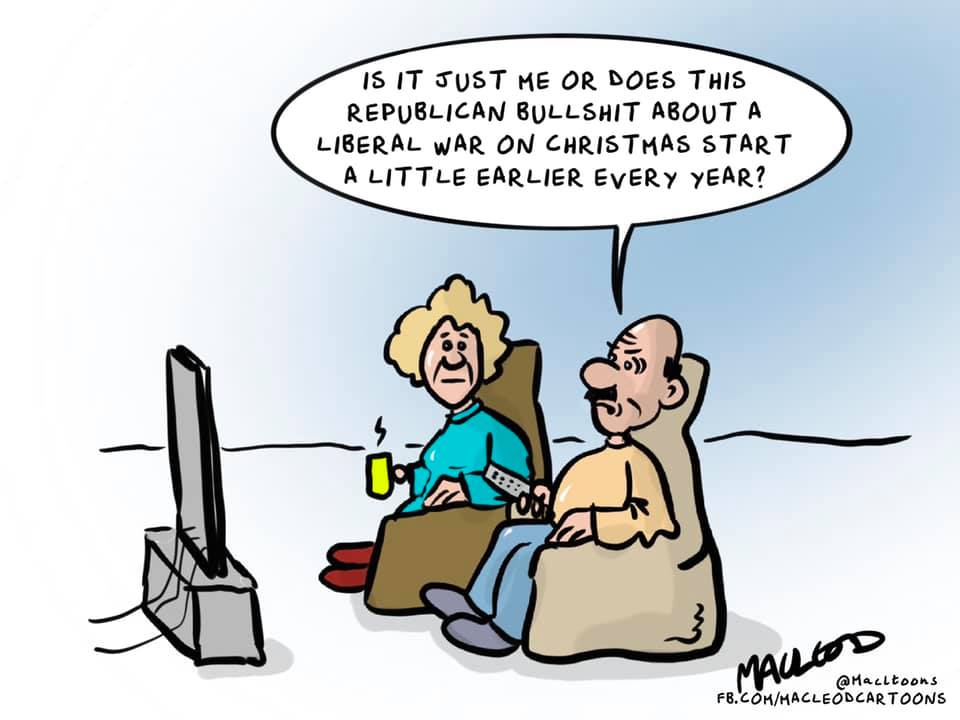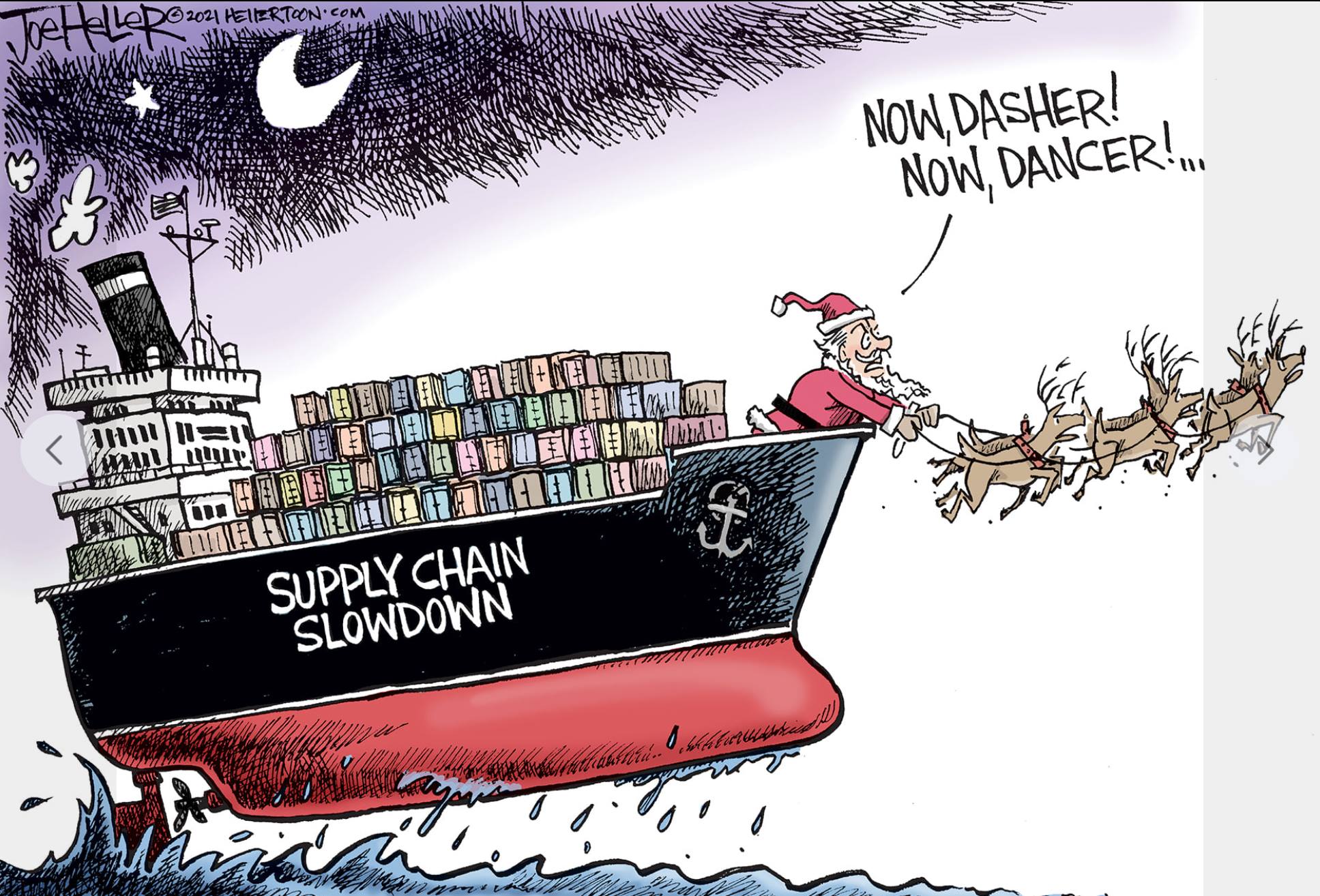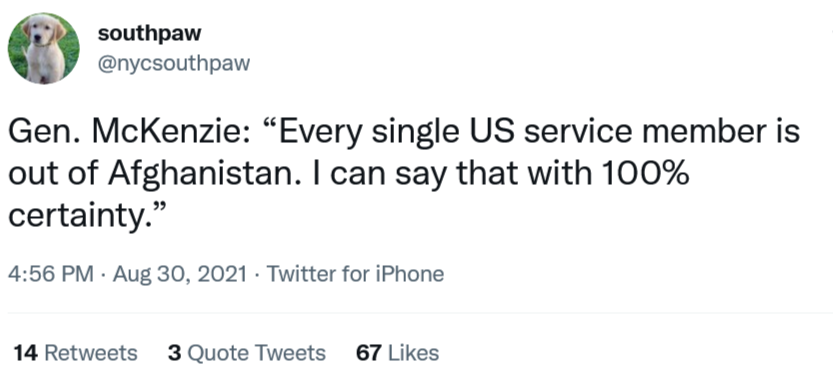The Daily Escape:

Lone Rock, Lake Powell – November 11, 2021 photo by Ron Broad. This shows how dramatic the loss of water has been in the lake. One commenter said it was possible to boat completely around the Rock in July 2021!
The country is facing a series of problems that, if unresolved, point towards a bloodbath for Democrats in the 2022 mid-term election. An ABC poll, released this weekend should be a wake-up call. Here’s a chart showing early mid-term voting preferences by Party:
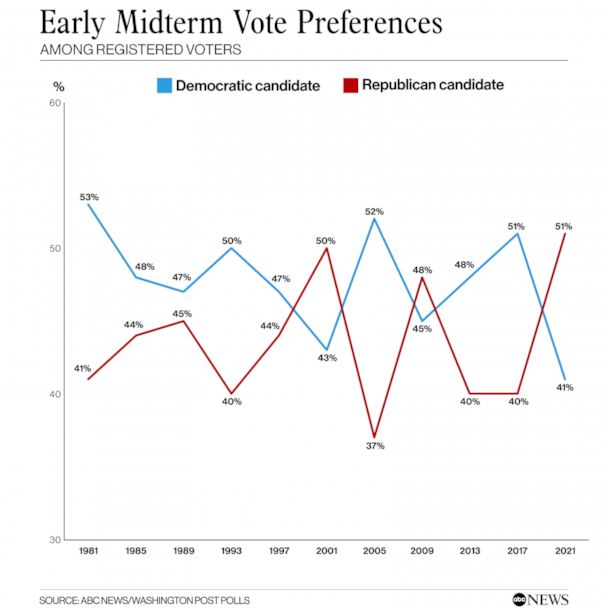
On a generic ballot, it shows that the Democrats and Republicans have swapped places since 2017. Today the Dems are supported by just 41% of those surveyed, down from 51% in 2017.
It’s true that relying on polls conducted of just 882 registered voters via landlines, as this poll was, isn’t the only thing Democrats should build their political strategy on. But ABC’s result is similar to others.
People are frustrated with the economy, because they see how everything is getting much more expensive, and they’re blaming the government and politicians. They’re not blaming the Federal Reserve’s expansive policies, because the polls never ask about the Fed, and because most people don’t understand how it works.
Consider this: 62% said the Democrats were out of touch with the concerns of most Americans. One dimly positive note was that Americans didn’t rate Republicans much better, with 58% considering them out of touch. The economy was among the key factors: 70% said the economy is in bad shape, up from 58% in the spring. About half blamed Biden for inflation. And his approval rating of handling the economy plunged to 39%, with 55% disapproving.
Biden doesn’t control prices, but try telling that to consumers. People who make a living by selling their labor have seen recent wage increases get eaten up by higher rents, home prices, food prices, gasoline prices and higher new and used-vehicle prices.
But you can always find an economist or a political writer who minimizes an impending political problem. That’s the kind of thing that Wrongo said yesterday was a bad strategy for Democrats. Here’s Dean Baker: (emphasis by Wrongo)
“The October Consumer Price Index data has gotten the inflation hawks into a frenzy. And, there is no doubt it is bad news. The overall index was up 0.9% in the month, while the core index, which excludes food and energy, rose by 0.6%. Over the last year, they are up 6.2% and 4.6%, respectively. This eats into purchasing power, leaving people able to buy less with their paychecks or Social Security benefits….While the stretch of high inflation has gone on much longer than many of us anticipated, there are still good reasons for thinking that inflation will slow sharply in the months ahead.”
Needless to say, if inflation continues at rates not seen since the 1970s until the 2022 election, no voter will see it as transitory and that won’t be good for Democrats.
Biden has signed his $1 trillion infrastructure bill, hoping that the legislation will help jump-start a Democratic political recovery. His infrastructure plan may not add to inflation, but inflation in the most important things that consumers either notice and care about – food, gasoline, cars, and houses – doesn’t seem transient.
Biden has a few tools at his disposal. He’s doing what he should to address the microeconomic aspects of inflation: trying to increase capacity at ports, expanding microchip production and he’s considering a release of raw materials from the National Defense Stockpile. The biggest lever he hasn’t pulled is a tariff reduction, especially on goods from China.
Richard Nixon instituted price controls in 1971, They were the first and only peacetime wage and price controls in US history. After a 90-day freeze, increases would have to be approved by a “Pay Board” and a “Price Commission,” with an eye towards lifting controls, conveniently for Tricky Dick, after the 1972 election. His action led to greater inflation, not something any of us should want to see.
From Jason Furman in the WSJ:
“Ultimately inflation is a macroeconomic problem. It’s the Fed’s job to keep it under control….Policy makers at the Fed need to recognize that tools like asset purchases can’t solve the supply-side problems constraining US labor markets and output. They have a dual mandate. They have to take inflation into account even if the economy isn’t yet at maximum employment.”
Biden can pick a different Fed Chair, and there’s an additional vacant seat on the Fed’s board.
Biden can also be jawboning America’s CEOs about gas and food prices. Otherwise, he has no cards to play. All he can do is wait for supply and demand to turn back toward equilibrium, and hope that it happens in the next six months. If inflation turns around, Biden will get some credit.
If it doesn’t, you could see President Trump waddle back into the White House in 2024.


